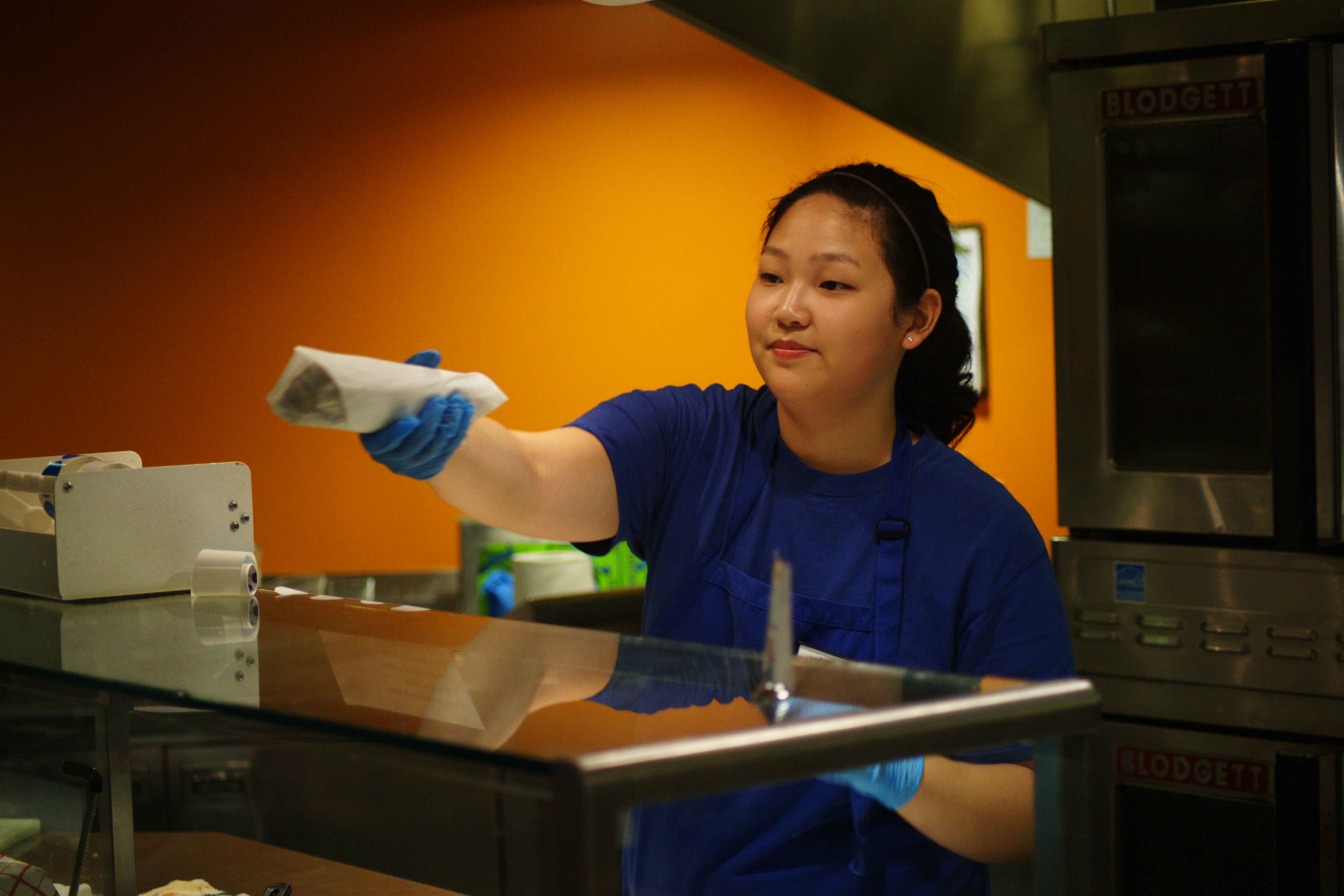
Dining Services will be altering the layout of stations catering to students with dietary restrictions throughout the rest of this year.
The first change, according to Senior Dining Services Manager Chelsea Bairey, is to create a station specifically for students with food-borne allergies. “All menu items from this station will be free of the top eight allergens (nuts, tree nuts, soy, dairy, wheat, eggs, shellfish, fish) as well as gluten,” Bairey said.
The goal of this station is to prevent cross-contamination in the food served for all students, which is more difficult with the current dining structure.
“The Diner is very excited for this station as it is another tool to prevent cross-contamination of allergens. There are very few universities in the country that offer similar stations,” Bairey said.
Cross-contamination and cross-contact are common factors that can trigger a person’s allergic reaction. Although Dining Services has labels for food and a variety of options for students, this station will reduce the presence of risk by isolating foods which are far less likely to be exposed to foods which may contaminate them.
“Along with the introduction of the allergen free station in the Diner there will no longer be a physical vegan/vegetarian station. The Diner chefs will ensure that daily vegan/vegetarian options are available throughout the Diner and the Diner has every intention of meeting the needs of vegans and vegetarians on campus,” Bairey said.
“The Dining team will advertise and promote vegan/vegetarian options as well as be available for questions, feedback and comments in the fall.”
Of course, some stations do have course options which may meet the requirements of vegan and vegetarian students on occasion. However, this initiative will increase that availability by spreading these options over all stations, without isolating it to one area in the diner.
“This seems like a potentially nice change. I rarely have trouble finding food options in the S.U.B. because I rarely change what I eat—gluten free sandwiches, scrambled eggs, corn tortilla tacos –but it would be nice to have an option that doesn’t have the risk of cross contamination,” student Robin Helwig said.
To assist with the planning of students’ dietary needs, Dining Services has made available the program My Nutrition. This program can help students look for certain nutritional parts of a diet, as well as screen for allergens and help vegan and vegetarian students.
“Within this program you can see the daily menus as well as allergen and nutritional information,” Bairey said. “This program is also linked to the QR codes you now see on our display menus. If you scan a QR code on our menus it will pull the nutritional information from this website.”
There are still concerns about this program. “My worry is that their anti-allergen station won’t also crossover with their vegan/vegetarian options, because as a vegetarian/gluten-intolerant student I do sometimes run into difficulty finding something that meets both requirements,” Helwig said.
Hopefully, through programs like My Nutrition and these new changes, Dining Services will be able to cater to students with these dietary needs.
Puget Sound has a range of students who all have different food choices and issues. Increasing the availability of options for these students might reduce current problems and lead to a better dining experience.
“The Diner looks forward to welcoming the campus community to the new facility in the fall and meeting all nutritional needs in a beautiful new facility,” Bairey said.
“Honestly the biggest fix that the S.U.B. needs to make is finding gluten free oatmeal. Their sign claiming that they are looking for a new option has been posted there since, like, last semester,” Helwig said.





